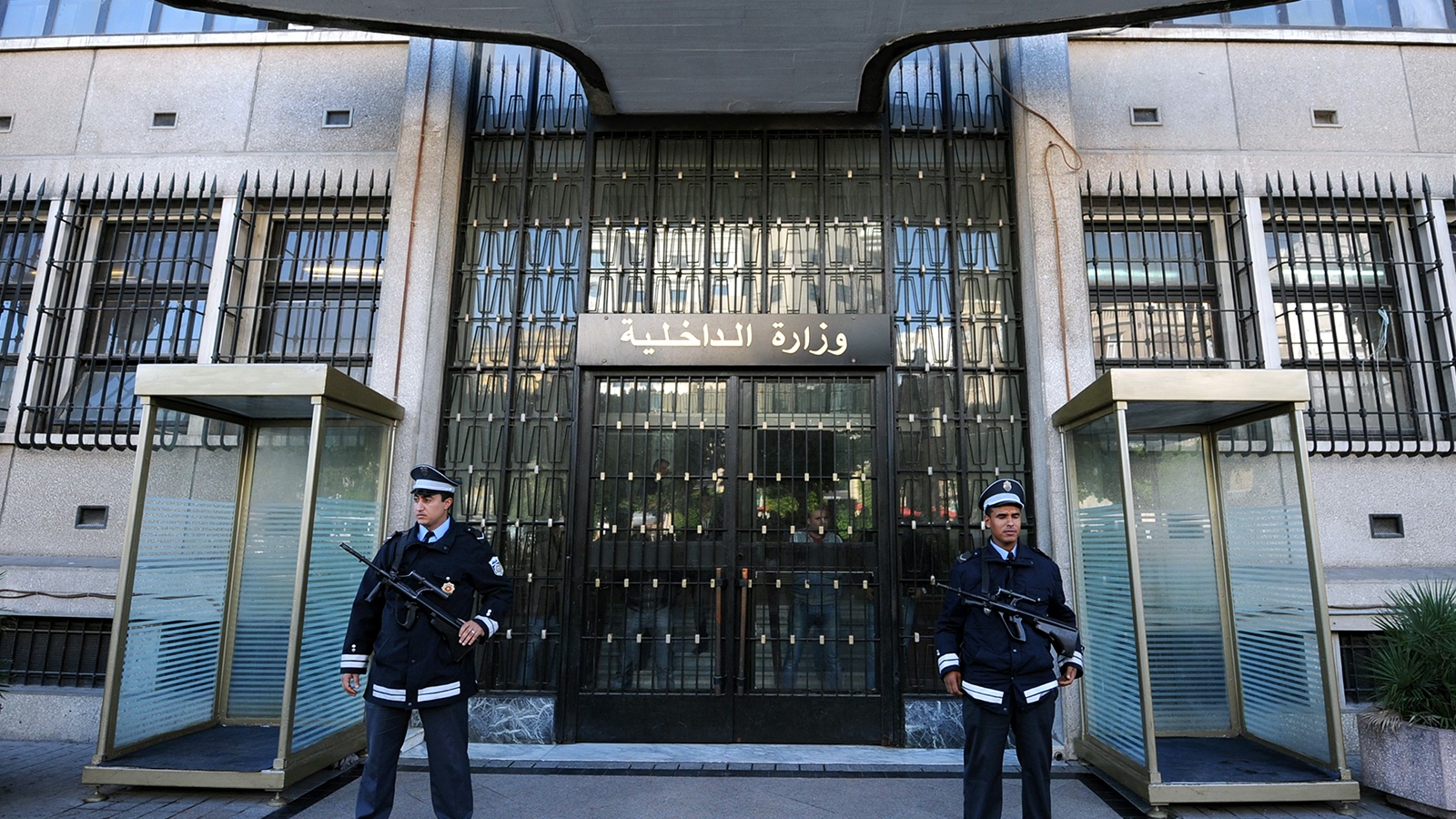There have been growing public concerns in Tunisia over the role of some members of the security apparatus, who are affiliated with organized unions of security sector employees. This prompted Tunisia’s Ministry of Interior last August to issue a statement in which it indicated that it was in the process of taking a number of necessary legal and disciplinary measures against some members of the security forces affiliated with these unions. These measures come in response to allegations that some union members have been committing transgressions that undermine security and stability in the country. These issues take on special significance in the context of the general political crisis Tunisia is experiencing, which therefore prompted calls for the dissolution of these unions.
A number of public incidents triggered these calls, among them the intrusion of some members of the security apparatus into a performance by the Tunisian artist “Lotfi Al-Abdali”, forcing him to halt the performance. These security personnel, who were charged with securing the performance, accused the performer of “provocation”, thereby setting themselves up as arbiters on public morality and artistic licence. The performance was attended by a large audience, and the incident led to tensions between the public and the security forces. There were also allegations of an assault by the security forces present on the play’s producer, which necessitated his hospitalization. The incident provoked strong condemnations from human rights activists, who demanded that the security personnel involved be held accountable and that their unions be dissolved.
The public furore regarding this incident prompted comments from Tunisian President Kais Saied, underlining that security personnel were not allowed under any pretext to refuse to secure public events. According to him, doing so can be considered a form of striking, which security personnel are forbidden to do by the constitution. The president reiterated this position in a meeting with the Minister of Interior, encouraging him to take the necessary measures to put an end to such abuses.
In response, the National Security Unions Front (comprising eight unions of security personnel, such as the Syndicate of Employees of the General Administration of Intervention Units, the National Union of Tunisian Security Unions, and the National Union of Internal Security Forces) denounced the measures taken by the Ministry of the Interior , as well as the discourse adopted by President Saied . The Union’s statement expressed the expectation by security forces of a different stance from the political leadership, one that recognised the exceptional efforts they are making to provide security under difficult conditions, and their adoption of a neutral stance in the climate of political polarization that has swept the country in recent months. The statement tried to appeal for popular support, by implying that subsequent governments have attempted to “subjugate” and “politicise” the security forces.
The National Security Unions Front also rejected the President’s proposal to merge into a single union structure under the name of the General Tunisian Federation of Internal Security Forces, the main task of which would be limited to advancing the social welfare of its members and their families. This refusal sets up a confrontation with the President, who is also the supreme commander of the armed forces, and the security forces.
It appears that the unions perceive the President’s proposal as an attempt to undermine their independence through political dictates. The unions argue that such a development should come in response to demands from within the unions themselves and are defending their right to independent action and organisation, which has improved conditions for members. The difference in opinion regarding this issue reflects a wider divergence between members of the security forces and the regime regarding the scope of action for unions.
Meanwhile, there has been a growing momentum in society to hold the individuals involved in the original incident accountable legally, based on the principal that all citizens are equal before the law. The demands that security forces cannot be considered above the law came in response to the objections by the unions to punishments meted out to security personnel. Some Tunisian human rights activists denounced the unions, accusing them of adding to the political and social polarization in the country.
The debate around the incident has once more brought to the fore the issue of reforming the security sector. Opponents of the Unions view their role as a result of the failure of successive governments, since the establishment of the unions in 2011, to reform the security apparatus. Others argue that Al Nahda movement worked diligently to infiltrate the security apparatus, and to exploit it for its own ends, which led to further deterioration in the efficiency of this sector.
There have been several instances when actions by these unions have been deemed in the interest of individual or factional interests. Such instances include their siege of the seat of government in 2016 to obtain financial demands. In 2017, the unions pressured the political elite to pass a law criminalizing attacks on security forces. The unions also laid siege to the headquarters of the “Ben Arous” court in 2018 and in 2020 to pressure the judges not to sentence some security personnel alleged to be involved in crimes of torture.
The Unions have chosen to escalate against the Presidency and the Ministry of Interior, as indicated by their statements. The statements indicate the unions intend to defend their rights , and that they view any attempt to unify the security unions into one union structure as an infringement of these rights, and would tarnish the President’s efforts to achieve fundamental political and constitutional reform. The unions also announced they would not provide security in the future to any performances they deem to violate public decency. This has sparked widespread condemnation on social media, as well as from cultural and artistic circles in Tunisia, in rejection of what is deemed to be censorship by security forces.
In conclusion, it is expected that President Kais Saied and his government will likely take legal measures to stop such abusive measures by security personnel affiliated with the unions, but will at the same time seek to diffuse tensions to avoid a scenario where security forces refuse to carry out their duties. This is particularly crucial in view of the upcoming parliamentary elections in December, which are central to the President’s vision for political reform. The compliance of security forces will be essential to completing this political milestone.


